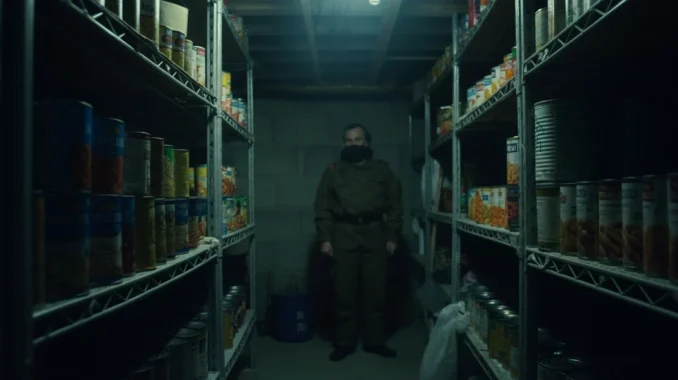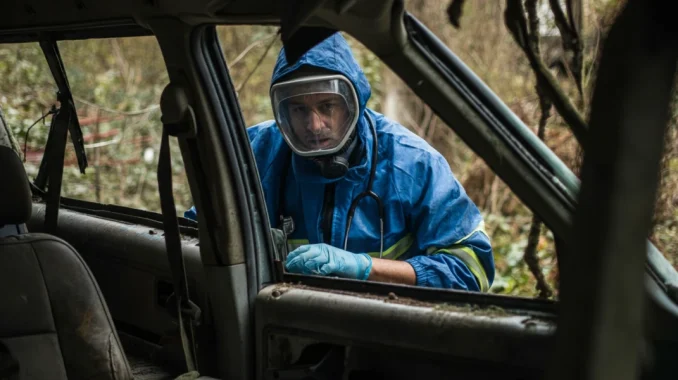In times of war, conflict, or major crises, small mistakes can have serious consequences. Whether it’s underestimating risks, failing to prepare, or making panic-driven decisions, these errors can put lives at risk. The key to survival is learning from common mistakes and taking proactive steps to avoid them.
Many of these mistakes stem from a lack of knowledge, unrealistic expectations, or simple oversight. In an emergency, the situation changes rapidly, and bad decisions can have life-or-death consequences. By learning from the most common errors, you can increase your chances of survival and protect your loved ones.
This guide will cover the most frequent emergency mistakes people make, along with practical solutions to help you stay safe and prepared during a crisis in Europe.

Mistake #1: Not Having a Plan
The Mistake:
Many people believe they can figure things out when the time comes, assuming they will have enough time to react. In reality, emergencies happen fast, and without a solid plan, panic sets in, and mistakes happen. Waiting until a crisis is already unfolding means you’re already at a disadvantage, trying to make critical decisions under stress and confusion.
How to Avoid It:
- Have an emergency plan – Know what to do, where to go, and how to contact family members in case of separation.
- Practice emergency drills – This helps you react quickly in real situations, reducing hesitation and fear.
- Identify safe locations – Know where to shelter during bombings, looting, or civil unrest, such as reinforced rooms, underground shelters, or secure community centers.
- Create a communication plan – If the internet and phone networks go down, have a backup way to reach loved ones (e.g., walkie-talkies, designated meeting points, or handwritten notes in pre-arranged locations).
What NOT to Do:
- Do not assume government aid or law enforcement will be available immediately. In extreme situations, authorities may be overwhelmed or unavailable for long periods.
- Do not rely on a single plan—always have alternative routes, backup shelters, and multiple contingency strategies.
- Do not keep your important documents scattered—store copies in multiple safe locations, including waterproof pouches and digital backups on secure USB drives.
Mistake #2: Ignoring the Importance of Food & Water Storage
The Mistake:
Many people assume that stores will always be open, or that emergency aid will arrive quickly. In war zones or long-term crises, food shortages can happen suddenly. Supermarkets can be looted or closed indefinitely, and supply chains can break down, leaving people without essentials.
How to Avoid It:
- Stockpile at least two weeks’ worth of food and water per person. A month’s supply is even better if space allows.
- Choose long-lasting foods such as rice, pasta, canned goods, dried beans, nuts, and high-calorie survival bars. Prioritize foods that don’t require refrigeration or extensive cooking.
- Store clean drinking water in bottles or large containers (minimum 2 liters per person per day). Consider rainwater collection or underground storage tanks.
- Have a water purification method (filters, purification tablets, or boiling techniques) in case regular water supplies become contaminated.
What NOT to Do:
- Do not hoard perishable items (milk, fresh meat, fresh vegetables, etc.)—they will spoil quickly in a power outage.
- Avoid relying only on frozen food—a long power outage can ruin your entire supply.
- Do not forget a manual can opener—many emergency foods come in cans, and you won’t be able to rely on electric openers.
Mistake #3: Over-Reliance on One Power Source
The Mistake:
Some people assume they will always have access to electricity, fuel, or batteries. Blackouts during conflicts or war can last for weeks or months. Without power, essential tasks like communication, heating, and cooking become difficult or impossible.
How to Avoid It:
- Have multiple backup power sources (solar panels, battery banks, generators, and hand-crank chargers) to ensure you’re not relying on a single system.
- Use power wisely—prioritize essential devices such as communication (radios, phones), medical equipment, and lighting over entertainment or non-essentials.
- Stockpile fuel in safe, ventilated storage (if using generators) and rotate stored fuel to prevent it from becoming unusable.
- Charge devices whenever electricity is available—don’t wait until batteries are low before thinking about recharging.
What NOT to Do:
- Do not run a generator indoors—carbon monoxide poisoning can be fatal within minutes.
- Do not leave all batteries unused for months—check and recharge them regularly to maintain efficiency.
- Avoid buying cheap, unreliable solar panels or power banks—invest in quality equipment that will last in an emergency.
Conclusion: Stay Prepared, Stay Smart
Emergencies can happen quickly, and being prepared can mean the difference between survival and disaster. The biggest mistake is assuming things will stay normal or that someone else will help you. Many people who survive major disasters do so because they took steps in advance.
Final Recommendations:
- Have a solid emergency plan with clear steps for different scenarios, including sheltering in place and evacuation.
- Stockpile food, water, medical supplies, and backup power sources. You don’t want to be scrambling when resources are already scarce.
- Stay discreet about your resources to avoid becoming a target in high-crime situations or desperate communities.
- Learn survival skills and first aid—knowledge is just as important as supplies. Being able to purify water, cook without electricity, and treat injuries can make a life-saving difference.
- Remain flexible and adaptable—situations can change rapidly, so be ready to adjust your plans and move to a safer location if needed.
By avoiding these common mistakes and making smart, informed decisions, you can significantly improve your chances of surviving a crisis and protecting those you care about.
Preparation starts today. Take action now, and you’ll be ready for whatever comes next.




